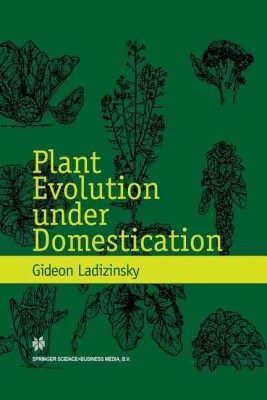| Plant Evolution Under Domestication 1998 Edition Contributor(s): Ladizinsky, Gideon (Author) |
|
 |
ISBN: 9401059039 ISBN-13: 9789401059039 Publisher: Springer OUR PRICE: $161.49 Product Type: Paperback - Other Formats Published: October 2012 |
| Additional Information |
| BISAC Categories: - Technology & Engineering | Agriculture - Agronomy - General - Science | Life Sciences - Botany - Science | Life Sciences - Genetics & Genomics |
| Dewey: 631.52 |
| Physical Information: 0.56" H x 6.14" W x 9.21" (0.84 lbs) 254 pages |
| Descriptions, Reviews, Etc. |
| Publisher Description: This book emerged from a series of lectures on crop evolution at the Faculty of Agriculture of The Hebrew University of Jerusalem. While many textbooks are available on general evolution, only a few deal with evolution under domestication. This book is a modest attempt to bridge this gap. It was written for advanced undergraduate and graduate students in the fields of crop evolution, ethnobotany, plant breeding and related subjects. Evolution under domestication is unique in the general field of plant evolution for three main reasons: (a) it is recent, having started not much more than 10 000 years ago with the emergence of agri- culture; (b) the original plant material, i. e. the wild progenitors of many important crop plants, still grow in their natural habitats; (c) man played in this process. These factors enable a more reliable a major role assessment of the impact of different evolutionary forces such as hybridization, migration, selection and drift under new circumstances. Interestingly, a great part of evolution under domestication has been unconscious and a result of agricultural practices which have created a new selection criteria, mostly against characters favored by natural selec- tion. Introducing crop plants to new territories exposed them to different ecological conditions enhancing selection for new characters. Diversity in characters associated with crop plants evolution is virtually absent in theit wild progenitors and most of it has evolved under domestication. |